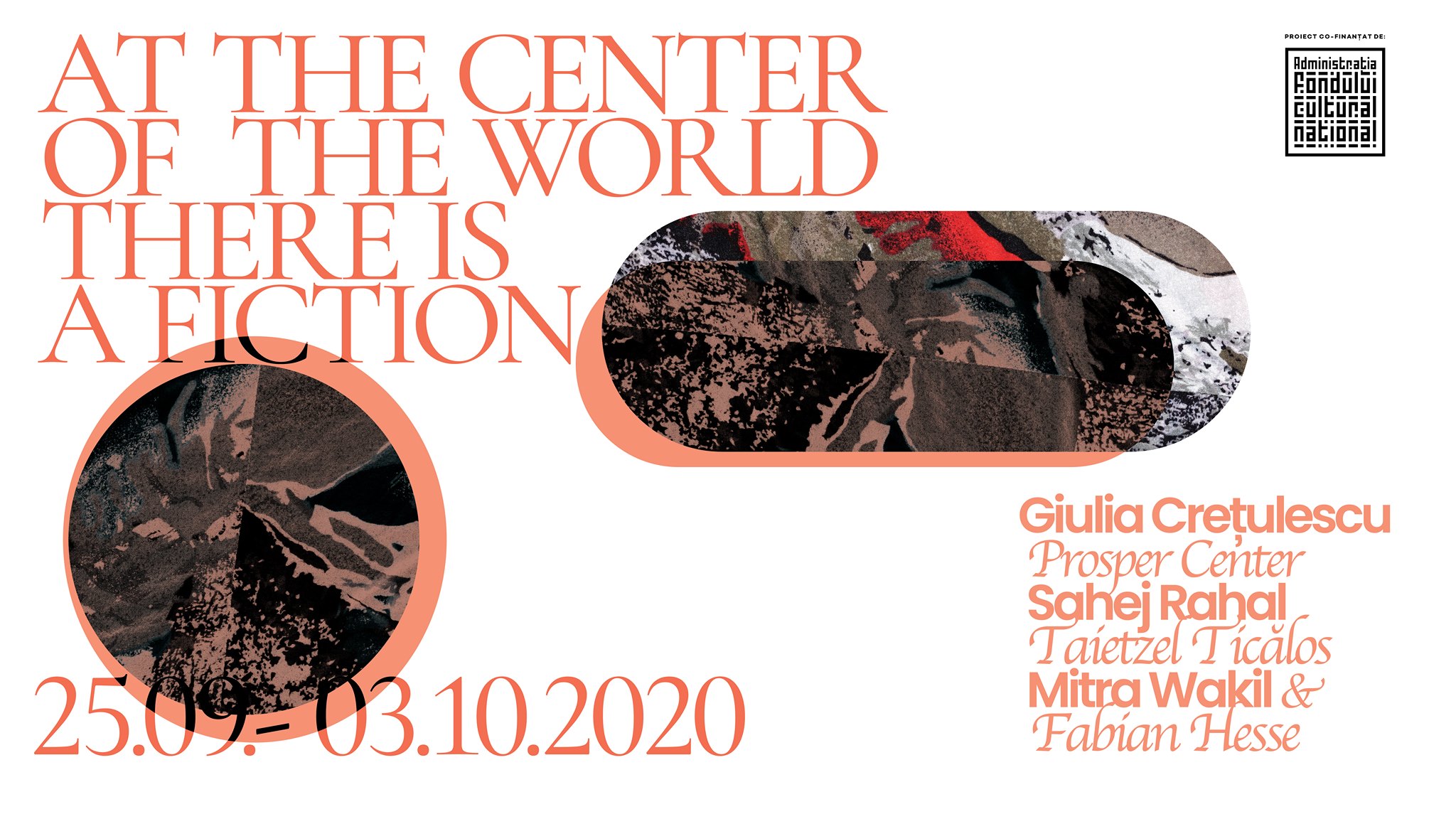
Exhibition: At The Center of The World There is Fiction – Aici Acolo Pop up Gallery
At the center of the world, there is a fiction
25.09.2020 – 03.10.2020
Opening: September 25, 19:00
Location: Strada Memorandumului, 23, 400114 Cluj-Napoca
26.09 – 03.10: Visiting by appointment.
Giulia Crețulescu
Prosper Center
Sahej Rahal
Taietzel Ticălos
Mitra Wakil & Fabian Hesse
___________________
{} “…a fictional piece of land a meter wide by a meter long. It has not been thrown up from the depths; not from the violence of lava bursting up and cooling, though there is violence in its history. It is called Null Island, and you cannot travel there.” (Jon K. Show & Theo Reeves-Evision, Fiction as Method, 2017)
Null Island is what science would often name an ‘objective untrue;’ it is a functional placeholder, in this case for where the Equator line and the Meridian line meet – one scientifically proven halving the Earth between poles; the other, culturally inscribed and haunted by culture of violence, setting our draconian measure of time. It’s the point from where the GPS systems ground their calculations, set algorithms of geolocation, and run us safely home. Whenever we search our way, tag ourselves, map images and memories, we pass through it.
Yet, if we might not be able to travel into such a fiction (or a non-place), it seems we come to wear them nonetheless. In a netted world like ours, fictions are well embroidered in our everyday life, connected to our devices and screens. Already extensions of our bodies, it’s not difficult to see ourselves as already made out of these beautiful electronic designs. But what looks back at us, mirrored from shiny and wired surfaces, might be a well-crafted fiction of our ‘profiles’. Designing us much as we design them. Objects, algorithms, interfaces – are ultimately actors in a network, which often features pre-emotive and predictive ‘dispositions’ – that already know (too well) what a ‘body’ is and should do.
So how do we address the possibilities fictions inside our devices and technologies open up for our bodies? Considering fashion and design functions as loose reference points, for they deal with the vast material of our everyday life, from images to materiality, to technologies, and habits. These ‘Wrappings of the Body’ are so closely brushing against us, in touch with the warmth of our bodies, that we take their presence for granted. Ambivalent surfaces, what we wear is not only political and shapes our lives, but extends bodies (and objects) beyond the limits they’ve been confined to.
Storytelling, as Yvonne Förster suggests, has been one of the first ways through which the virtual crossed into the real, just as the digital spills over now. As the universe of rendered virtual spaces expands into our lived experience, there is hope that within those fictions there is room for sensual and sensorial forms of connectedness. Opening up to the unknown and the vulnerable might nurture a space where new links between human and non-human are experienced.
In this line of thought, the exhibition brings together artists that look at some of the body fictions already here and the possibilities to insert stories, to open them up otherwise. What comes together is a space for movement, where we might get across incantations, memory carriers, non-human entities, and frictioned reminders of our own bonding and body renderings. After all, it matters still what stories we tell and who gets to act through them. (Donna Haraway)
Aici Acolo is a curatorial collective by a group of friends, artists, and curators, that organize Pop Up exhibitions in unused or abandoned spaces in Cluj-Napoca.
Aici Acolo’s 2020 programme is titled Fictions of Tech & Life and explores through a series of exhibitions and residencies the fictions that embedded in many of our day to day interactions, stories mediated through technology, and the narratives that shape our contemporary society.
Project co-financed by the National Cultural Fund Administration. The project does not necessarily represent the position of the National Cultural Fund Administration. AFCN is not responsible for the content of the project or how the project results can be used. These are entirely the responsibility of the beneficiary of the funding.
Parteneri: Centrul Cultural Clujean, Centrul Cultural German Cluj-Napoca, Fabrica de Pensule, Universitatea de Artă şi Design din Cluj-Napoca / UAD, Spam-Index.com, MATCA artspace.
Design credit: Flavius Augustin